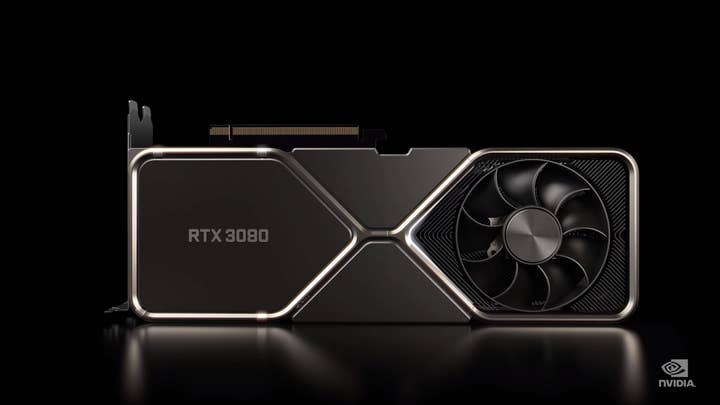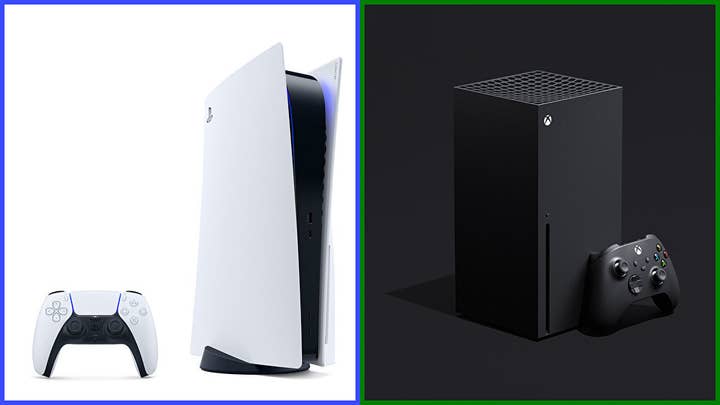Hardware launches and pre-orders desperately need a shake-up | Opinion
Retailers and manufacturers have failed consumers with the botched, badly-managed launches of consoles and graphics cards in recent weeks
Big hardware launches are always going to leave some consumers feeling unhappy and let down. It comes with the territory; you've got a new product that's been anticipated for months if not years, a large group of devoted fans impatient to get their hands on it, and a capacity to manufacture and ship products for launch that doesn't quite match up to that demand. Throw in a dash of supply chain management, and you've got an inevitable recipe for some people being unable to get their hands on the devices they want at launch.
What's happened in recent weeks with the industry's three biggest hardware launches in years -- the Xbox Series X, PlayStation 5 and Nvidia's GeForce 3080 graphics card -- goes way beyond that inevitable degree of consumer disappointment. Each of these in-demand devices has ended up aggravating and frustrating consumers in droves, not because of low initial supply -- or at least, not entirely because of that -- but because the way in which their availability has been handled has revealed massive and growing problems in how the industry handles these launches.
The way in which availability was handled has revealed massive and growing problems in how the industry handles these launches
There appears to have been a massive disconnect in the communication between suppliers, retailers and consumers. This was compounded by some major retailers handling the launches in a way that seemed almost calculated to open the door to scalping and profiteering, infuriating their customers in the process.
It's tempting to hand-wave this away as something that's always happened, but to do so is to ignore the sheer scale of the cock-ups we've witnessed in the past few weeks. Sure, there was always someone willing to sell you that Wii your kids desperately wanted for Christmas for an extortionate mark-up in late December, but in the era of physical retail the actual process of scalping these launches was much more labour-intensive -- and it still left the door open for plenty of genuine consumers to secure the consoles they wanted.
As launches have moved entirely online -- a process accelerated to its endpoint by COVID effectively putting the kibosh on queues and midnight launch events -- the scalpers have really moved in. Within minutes of hardware pre-orders opening, consoles and graphics cards were being listed on auction sites or, even more egregious, being listed for huge mark-ups right back on sites like Amazon -- the same sites from which they'd originally been pre-ordered. The speed of these unscrupulous operations hints at their professionalism; where regular consumers try their luck refreshing store pages in their web browsers, scalpers set up networks of bots and web scrapers to ensure that they can capture as much launch stock of an in-demand product as possible.

Consequently, there's a psychological element at work here, too. From a consumer perspective, if some wild-eyed enthusiast gets their hands on a product I really wanted after camping out all night in mid-November and then hanging around in a queue all day, well, fair play to them -- they clearly wanted it more than I did. If, however, someone just sets up a bunch of bots on a server to inundate Amazon with traffic, blocking out regular consumers in the process, and snaps up a bunch of stock so they can gouge gamers and desperate parents in the run-up to Christmas -- a process Amazon, at least, pretty overtly encourages by allowing those immediate marketplace re-listings of pre-ordered items -- there's no sense of fair play at all.
It's mere insult to injury that there also seems to have been a total failure of communication between the manufacturers and the retailers, which means that some retailers aren't going to be able to fulfil all their pre-orders at launch anyway. It's not clear whether this is down to retailers overselling their allocations, or manufacturers failing to meet their projected quotas, but it's worth noting that consumer frustration at this situation has been focused squarely on Sony, Microsoft and Nvidia, not on the retailers.
Not only is this situation not inevitable, it's also completely avoidable
This explains, to some extent, the root of the problem. While these are launches of major products created by Sony, Microsoft and Nvidia, much of the control over the mechanism of those launches is out of their hands -- not least due to the enormous market power of Amazon, by far the worst offender in terms of botching major launches like this.
"Botching" perhaps isn't the right word, since the decision to allow scalpers to resell pre-orders at higher prices is pretty clearly an overt and deliberate policy choice. Why wouldn't Amazon decide to double-dip in that manner, knowing that most of the backlash would be focused on the manufacturers? Why would any retailer go out of their way to make the launch process more equitable and smooth, when consumer anger is going to strike at Sony, Microsoft and Nvidia in the end anyway?
Not only is this situation not inevitable, and not a mere repeat of the decades-old pattern of hardware launch sales, it's also completely avoidable. The internet has made these launches into a total disaster, a magnet for scalpers and a significant pain point for the industry's most enthusiastic and high-spending consumers. But it doesn't have to be this way, because the internet also offers us better ways of doing this.

Up front, we have to acknowledge that the first come, first served paradigm is a disaster; it's meaningless in the age of the Internet, when even a tech company with the prowess of Amazon can't build store pages that keep up with the speed of traffic at a popular launch. The result is confusing, contradictory and frustrating for consumers who add the product to their cart only to see it disappear a screen later, or go out of stock while they're choosing a delivery address, or flicker in and out of availability as they refresh browser pages. Using this kind of hare-brained system only gives the advantage to the scalpers, who can afford to set up bots and web crawlers to secure stock for themselves.
We have to acknowledge that the first come, first served paradigm is a disaster
Retailers should be looking to alternatives, and manufacturers should be none too gentle in their encouragement to do so. Lotteries, which are employed widely in some territories, are a pretty fair way that, if managed properly, can significantly diminish the impact of scalping on a launch window, and allow customers a fair chance at getting their hands on a product just by submitting an entry within a days-long timeframe. There are many ways to set up a lottery system with variations that encourage consumers to engage and build brand loyalty -- both for the product and the store -- rather than frustrating and annoying everyone involved.
Lotteries are one successful option, but far from the only one. The key thing is moving away from the daft notion that thousands of consumers frantically hitting refresh on their browser windows at a specific moment is a sensible internet-age replacement for an orderly queue outside a shop.
The push for this change is going to have to come from the manufacturers. For all that Sony, Microsoft and Nvidia may talk about how thrilled they are that everyone is so enthusiastic for their new hardware, the reality of starting a major product's lifecycle by pissing off a not insubstantial proportion of your devoted fans and lining the pockets of unscrupulous scalpers ought to be a pretty deep-cutting pain point for these companies. Amazon and its ilk are big, dominant companies that it's hard to apply any kind of pressure to -- but that's exactly what needs to happen, even if it means risking a pretty major public spat by bypassing uncooperative retailers entirely at launch.
The games industry needs to remember that these products aren't competing in a vacuum. This industry and its platforms are competing on a stage that extends far beyond games, and while some customers will absolutely hold out for the availability of the console or graphics card they want, others won't. A customer with £500 burning a hole in their pocket and a general sense of being ticked off at the games hardware firms come Christmas is going to find any number of other products more than happy to take their money -- a new smartphone, a shiny new iPad, or one of any number of appealing, impressive gadgets and devices that they can happily buy without having to go through the wringer. You might get that customer back down the line. You might not.
Stock shortages are inevitable. Incompetent allocation and management of what stock is actually available, however, is entirely optional. After three miserably managed pre-orders and launches in the space of a month, it's time for the industry and its retail partners to go back to the drawing board on how this entire process works.
